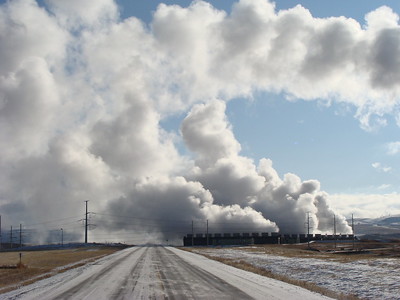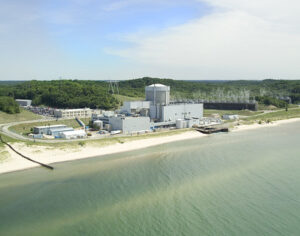Three and a half years ago, I wrote about the closure of a coal-fired power plant in Craig, CO. The closure of the Craig Station is nothing short of a sea-change for the residents who live there. It’s also a victory for clean energy advocates in Colorado.
Craig is not big; it had a population of about 12,600 throughout the Craig Census County Division (CCD) in the 2020 Census. The Craig Station employs about 600 people, so there are relatively few residents that won’t either be directly affected by the closure or know someone who will be affected by the closure.
Originally, Tri-State Generation and Transmission Association, which owns Craig Station, said it would shutter the plant by 2030. As part of the shutdown, Tri-State would gradually reduce the number of employees at the plant until shutdown. Decommissioning is set to begin in 2025. The people who work at the plant, and at the adjoining coal mines that feed it, make a decent wage – something on the order of $28-$30 per hour. At $60,000 per year and up, those jobs will be hard to replace.
Retraining 600 people, which is on order as part of the shutdown agreements, requires a monumental effort, and the people of Craig turned to Colorado Northwestern Community College to help retool a noticeable chunk of the county’s workforce. To replace the jobs at Craig Station, CNCC needs to put together high-wage, high-demand programs.
If the people of Craig weren’t already under the gun to get the Craig Station workers retrained, Tri State announced last December that it planned to accelerate the plant closure. Instead of ceasing operations in 2030, Tri State will decommission the plant in 2028.
Clean energy jobs are essential to meet power transition goals
Closing the plant does have its benefits. Craig Station accounts for about 90% of the state’s greenhouse gas emissions. Taking the plant offline sooner rather than later will be a major environmental win. Clean energy fits into the town’s re-imagining of itself as a tourist and ski resort. Closing Craig Station also paves the way for Tri-State’s plan to capture nearly $1B in federal funding to develop wind and solar energy in Craig instead.
Such a massive investment requires a trained clean energy workforce. If Tri-State gets the money, there’s a good chance that the same workers the company is shedding from the coal plant and mines will find themselves back on the payroll, driving the company’s rapid shift to clean energy. Tri-State plans to build wind and solar farms, as well as storage capacity for the clean energy it generates. In addition, the company will build a gas-fired power plant to ease capacity gaps as it transitions away from coal.
As Colorado is discovering, power generation has to be done locally. It’s not possible to buy enough energy from other sources or transport it from far away. Energy production must be done locally. Michigan is also undergoing a rapid conversion to clean energy. We need trained workers to manage the transition, supplement workers on the existing infrastructure and maintain newly built clean energy infrastructure going forward.
Clean energy jobs are among those high-wage jobs that this area so desperately needs. They also offer another example of the kind of high-wage, high-demand programs that Washtenaw Community College should be developing. How long is it going to be before the other community colleges in Southeast Michigan all have clean energy programs? If WCC wants to remain competitive, developing these kinds of programs is essential.
Photo Credit: James Michael Thomas, via Flickr













